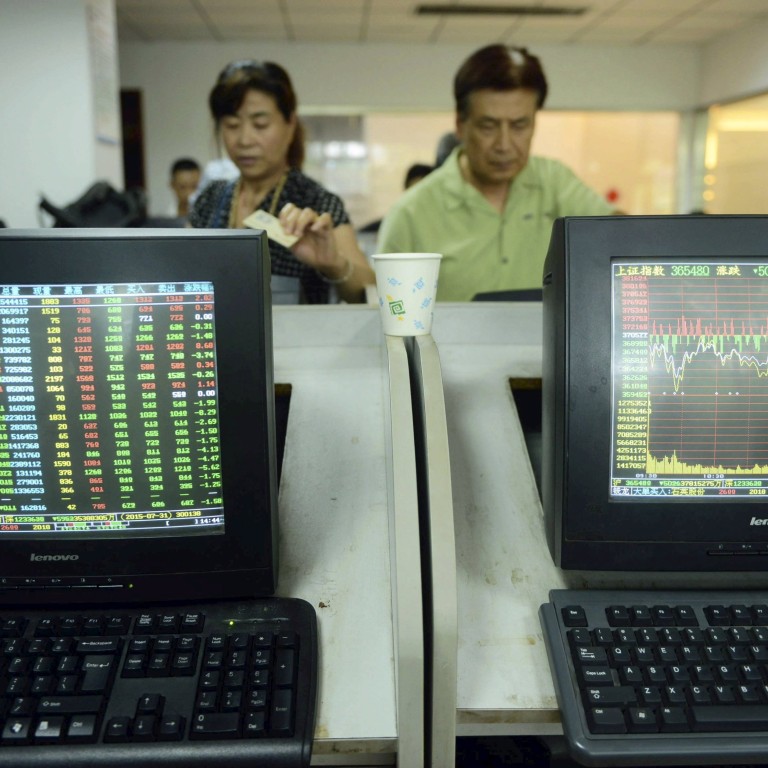
China stocks post worst monthly fall in 6 years
Mainland equities record biggest monthly decline since August 2009 as conflicting signals leave nervous investors unsure of market direction
Mainland stocks fell yesterday marking the single biggest monthly decline since the financial crisis as investors struggled to find direction in a volatile market rocked by conflicting signals from government agencies.
Tracking lower for most of the day, the Shanghai Composite index finished 1.13 per cent down at 3,663.73 points. The Shenzhen Composite index slipped 0.82 per cent in late trading to close at 2,110.62 while the blue-chip heavy CSI 300 index rose 0.03 per cent to close up at 3,816.7.
In Hong Kong, the Hang Seng Index finished 0.56 per cent higher at 24,636.28, while the H-shares index of mainland stocks dipped 0.5 per cent to end the week at 11,131.68.
About 2,000 mainland listed firms finished lower yesterday with gains in infrastructure and white-goods stocks offset by mounting downward pressure seen in large-cap oil companies and banks.
The benchmark Shanghai and Shenzhen indices dropped 14.34 per cent and 14.35 per cent for July, their worst monthly performance since August 2009.
The HSI fell 6.15 per cent in July, its biggest monthly drop since September.
Mainland officials are seeking to reassure observers they are committed to market reforms even as the regulator ramps up pressure on investors suspected of skirting new rules designed to support stock prices.
Since the markets plunged 30 per cent in June, the authorities have struggled to restore confidence among mostly retail investors despite introducing measures to pump money into blue chips and by banning certain stock selling.
"Emergency measures are short term in nature, while the direction towards market-oriented reforms remains unchanged," Chinese Securities Regulatory Commission spokesman Zhang Xiaojun said yesterday.
The CSRC was investigating "coordinated stock dumping" and had probed 52 cases where shareholders had "reduced their holdings in an unlawful fashion", Zhang said in a press conference.
The mainland regulator has asked Hong Kong and Singapore authorities for details of offshore trading records as part of a wider probe into short selling, reported Reuters. While Zhang did not dispute the report, he denied the CSRC had "directly" contacted executives at Hong Kong-based brokerages, as Reuters reported.
Fingering short sellers is a "smoke screen to lay the blame at someone else's feet," said veteran market analyst Peter Churchouse, adding such ad hoc measures are one reason foreign institutional investors have largely "headed to the hills".
Massive intraday swings of up to 10 per cent and fears of further falls are deterring some traders as many wait to see if Beijing can put a floor under the market.
"If there is a government standing in the market saying give it to me, they may have a lot given to them … but have they got the appetite for that as this could be hundreds of billions of US dollars we are looking at here," Churchouse said.

